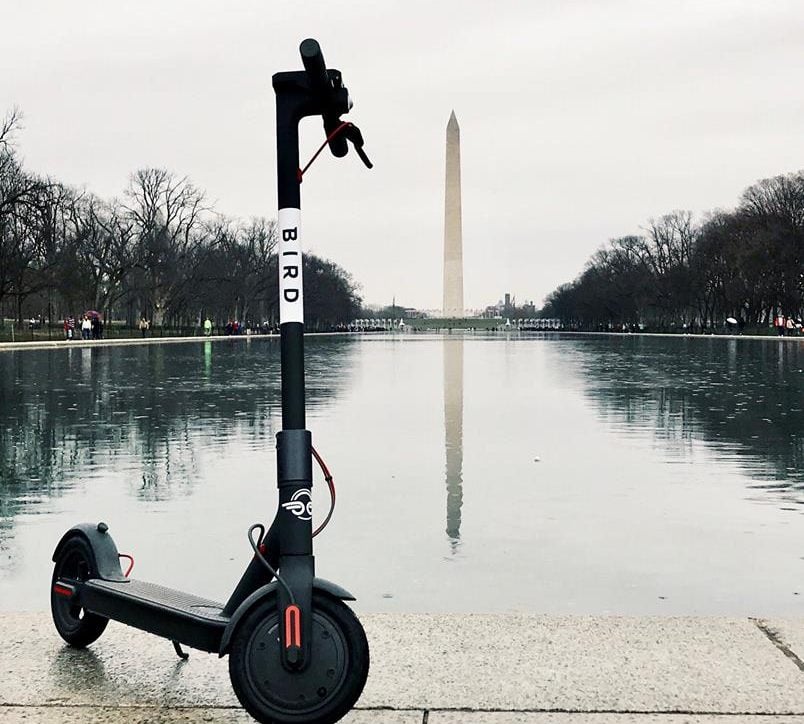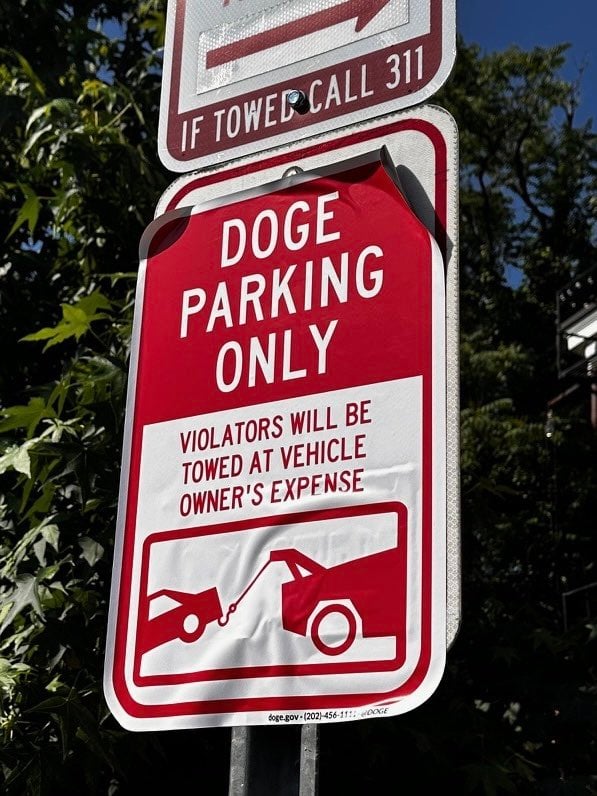Those electric scooters that have appeared around town are cheap to rent, can park anywhere, and zip you from points A to B at about 15 mph. But what are the rules for these things? Are they allowed on the sidewalks? Can you scoot in bike lanes? Do you need a helmet?
Electric scooters technically abide by the city’s regulations on personal mobility devices, which are similar to cycling guidelines, says a DC Department of Transportation spokesperson.
While bike lanes are a go, neither cyclists nor scooterists are allowed to ride on sidewalks in the city’s central business district, which, roughly speaking, includes much of the area between Union Station and George Washington University and from the Mall to Massachusetts Avenue. (You are, however, allowed to ride on sidewalks wherever the National Park Service has oversight, such as Dupont Circle.) In DC, scooter users aren’t required to wear helmets, carry insurance, or have a license, though you do have to be over 16 to operate one.
Through the end of April, any company that has a business license, insurance, and sufficient safety data can provide up to 400 scooters in the District. Right now, three companies have placed two-wheelers on the streets: Bird, Waybots, and Lime-S. To locate and rent them, you simply use a phone app. They’re all $1 to unlock and 15 cents per minute afterward (a price higher than most bike share options, which start at $1 or $2 per half-hour).
As with any new form of transportation, etiquette is a work in progress. After complaints in San Francisco about scooters left in piles on the street or parked in inconvenient spots, the city began impounding scooters, and scooters now require a permit to park on sidewalks.
And in DC, a recent cleanup by the Rock Creek Conservancy found five dockless bikes and one dockless scooter thrown into the water.
To combat such problems, Bird issued a pledge to keep sidewalks clean and to donate money to city governments to help build more bike lines. Issued to other dockless transportation companies like LimeBike, Ofo, and Jump, it asked that all work together to make the process as appealing to city governments as possible.
DDOT says it hasn’t heard of any scooter-related accidents, and MPD was unable to confirm whether there’d been any recorded incidents, either. Still, some lessons from cycling apply to anyone who wants to stay safe on an electric scooter: Wear a helmet, follow traffic rules, signal your turns, and always strive to be predictable.
However, sadly there is no lesson that will keep you from looking like a dork on a scooter.
















